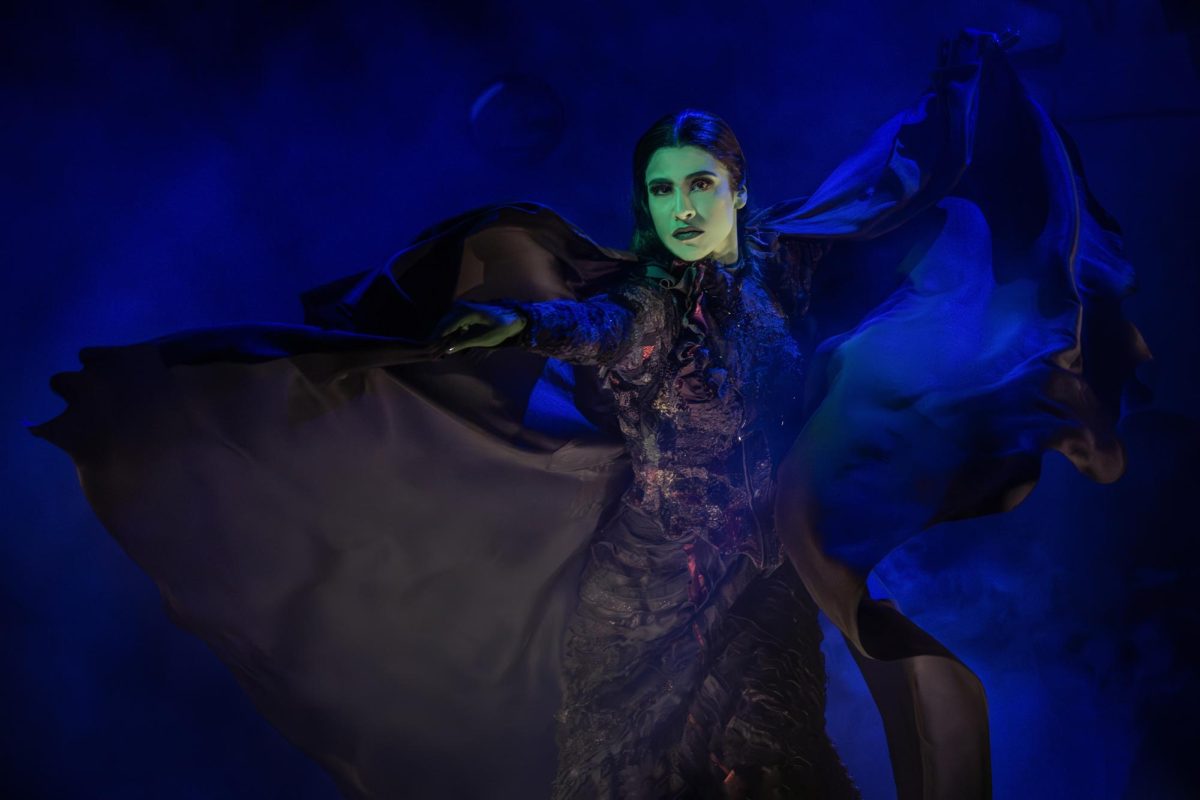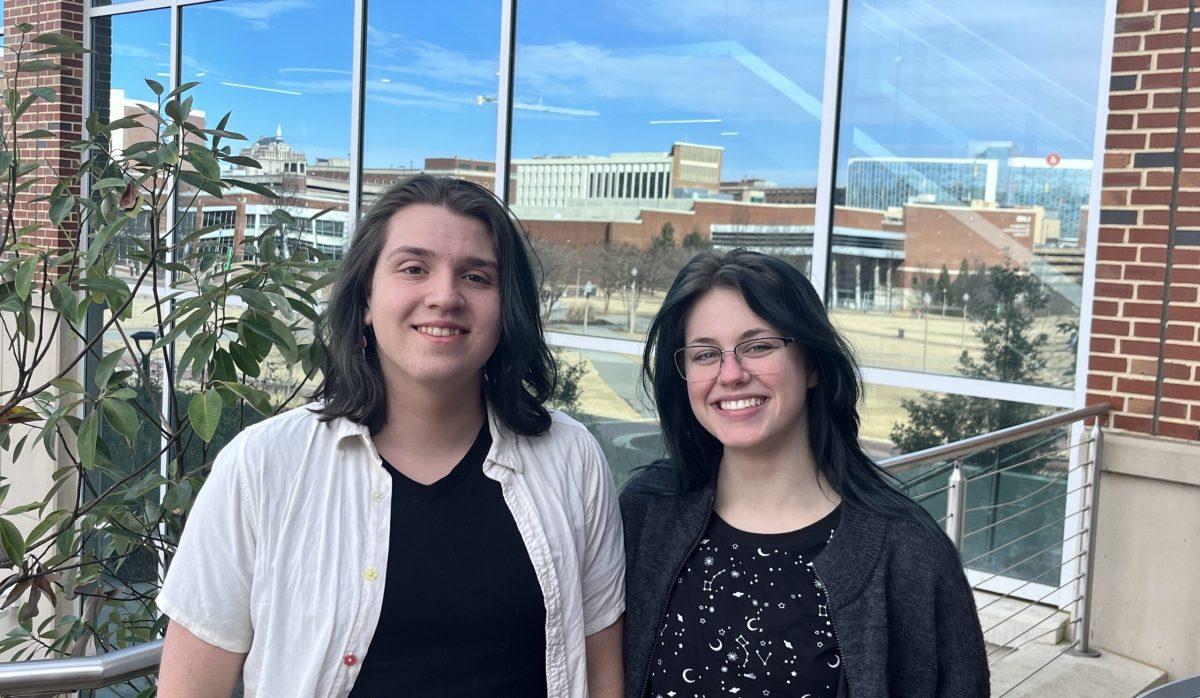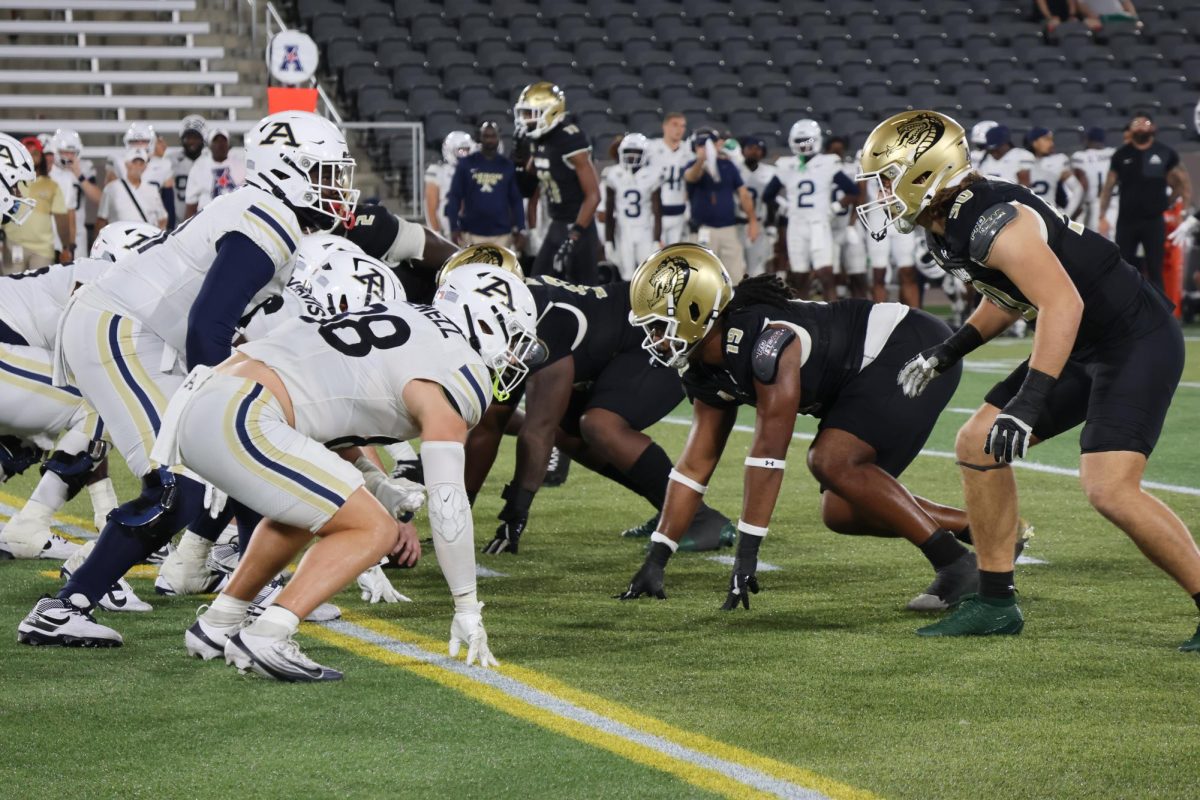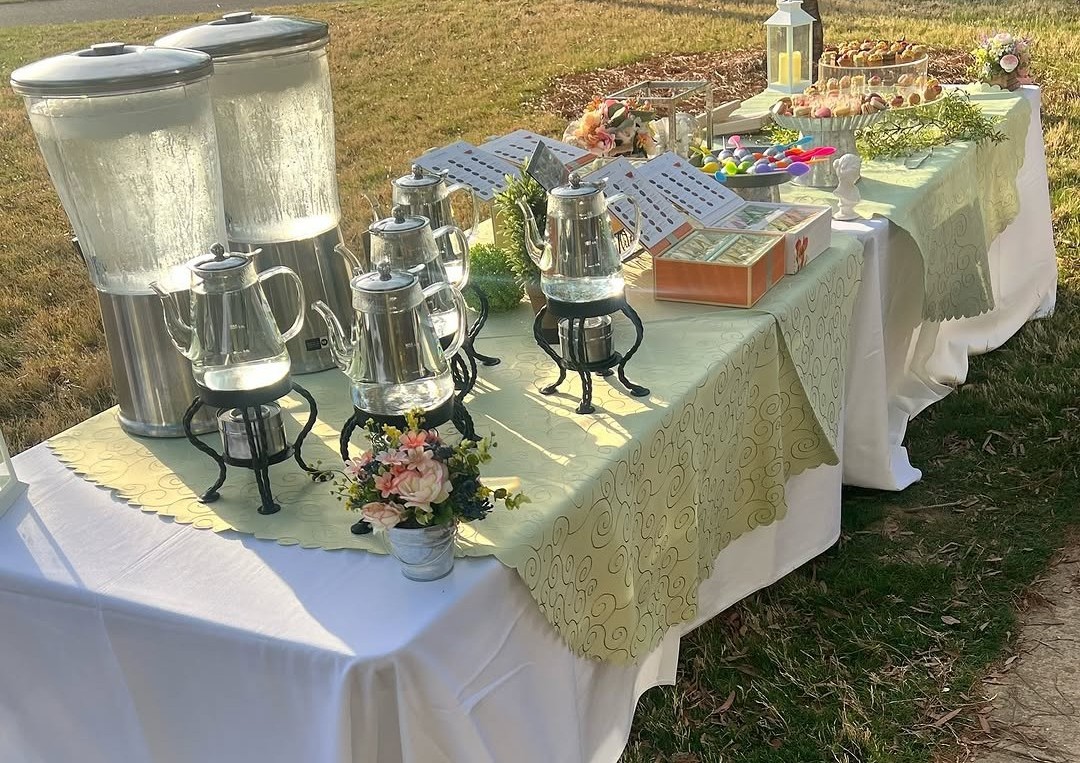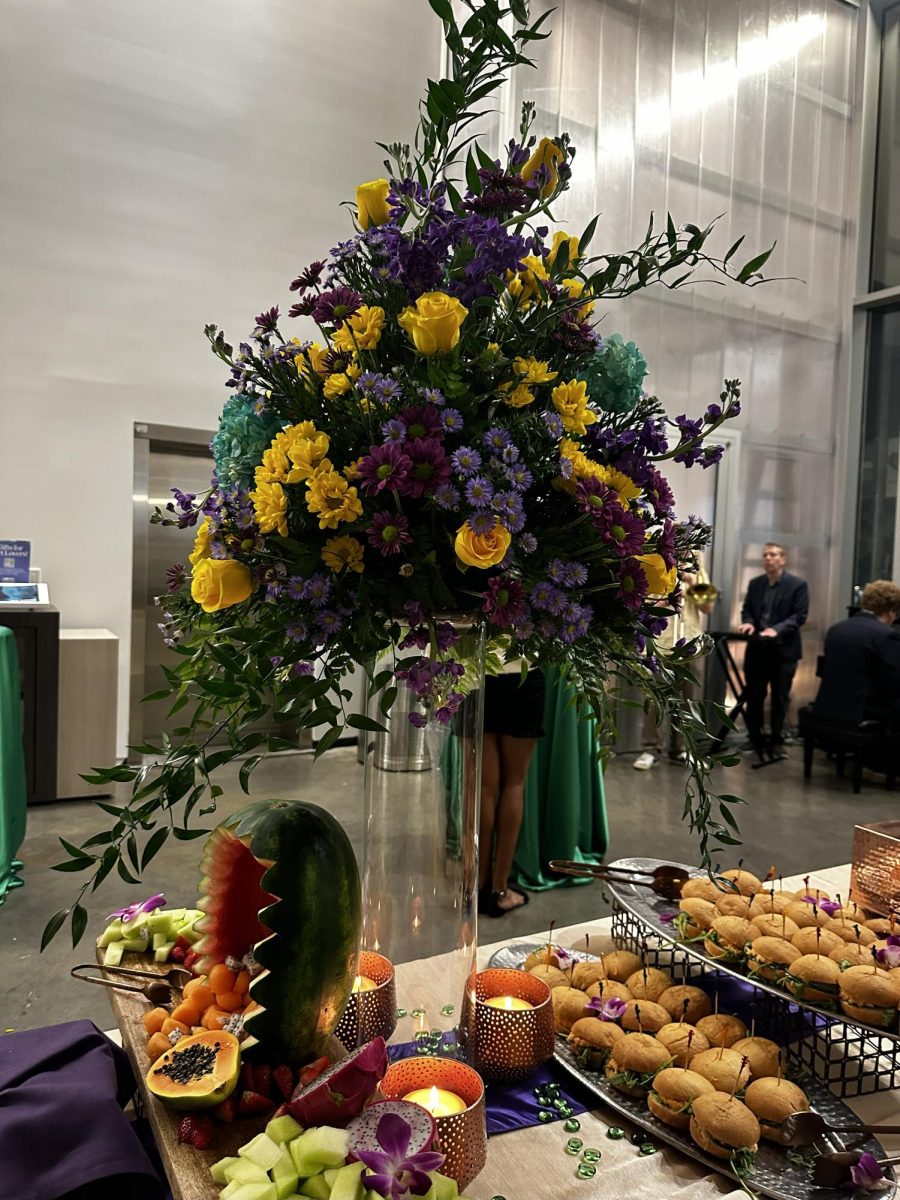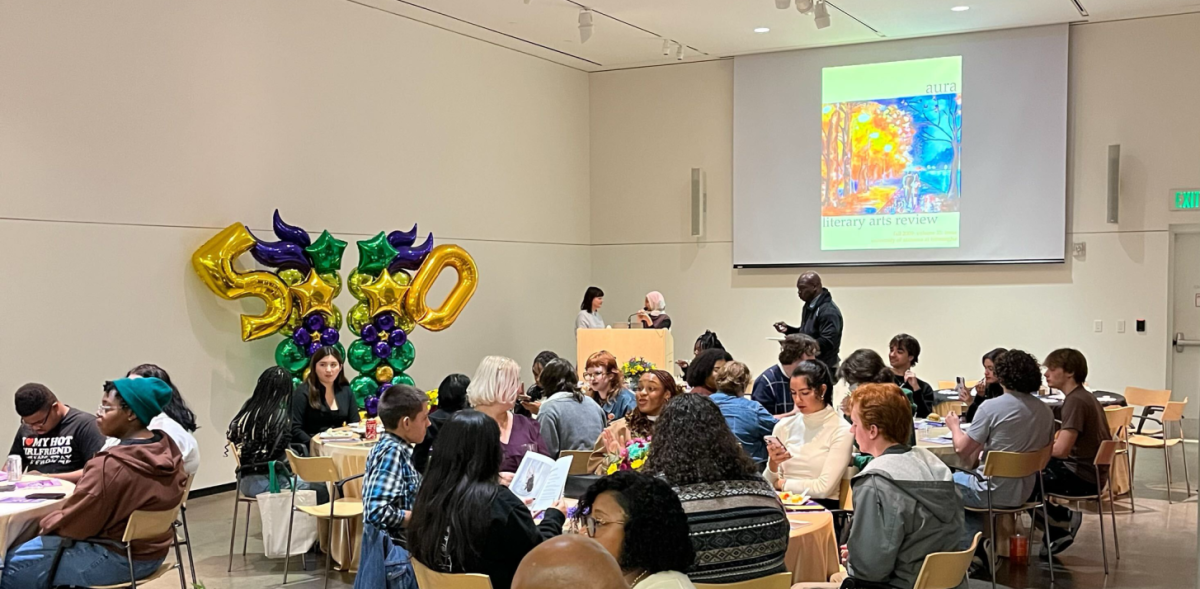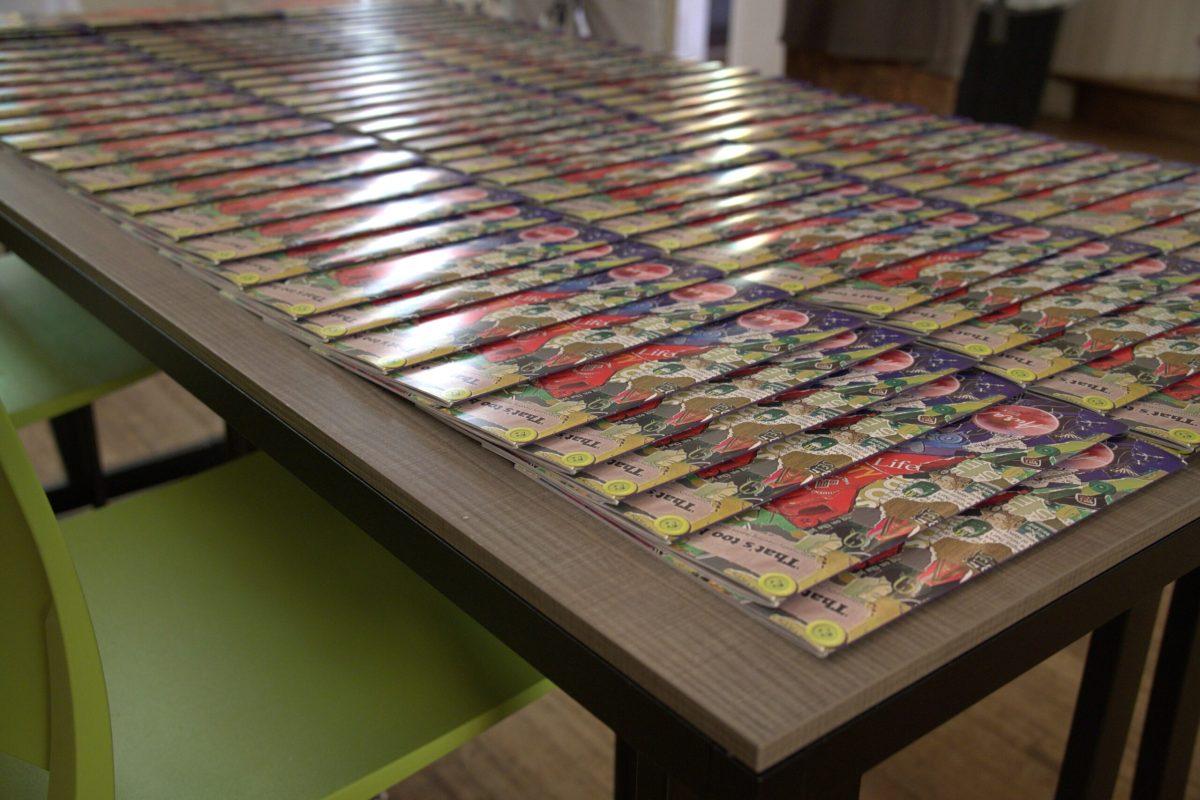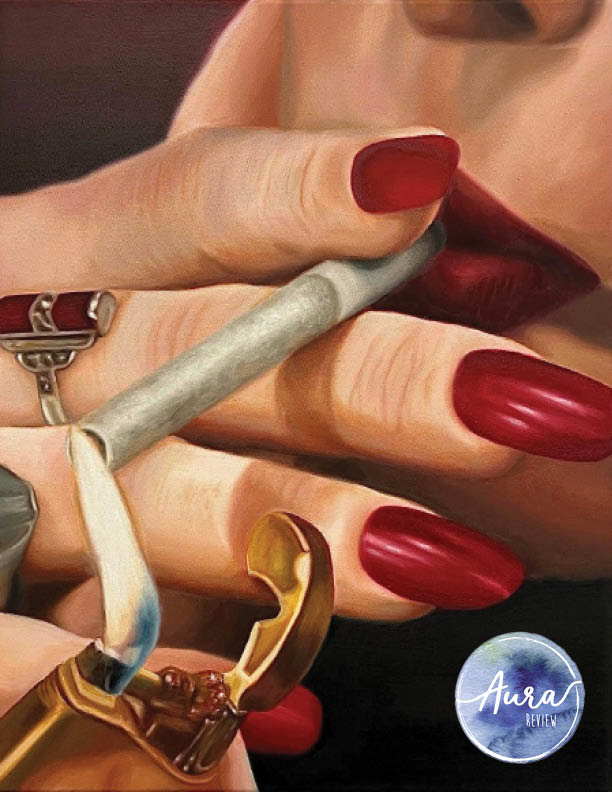Full Version of Ligaya Gapud’s excerpt from Vol. 50 Issue No. 2
She was nasty.
Her face contorted into a nasty gruel. It was so unseemly that anyone unfortunate enough to be in her proximity felt a bone chill shoot through the underside of their skin, skidding like a scared spider.
Nobody dared meet her gaze. There were rumors spread throughout town about what might happen if you looked into her eyes: cursed to become her eternal minion, solidified into ice, dissolved into dust, or even onset of smallpox. They began as hissy whispers between children during playtime, but the rumors traveled up to their parents, drawing up a shared disdain.
Funnily enough, her face was so twisted that if anybody were so brave as to lift their chin, they’d find her eyes were barely visible at all. They were like slits in a metal helmet, hollow and pointed. These untrustworthy eyes were bestowed upon her by her own mother.
Her mother was big and sweeping like a silken sheet which snatched itself from the clothing line. She was luscious like hair and piercing in the face. A raven with peacock’s feathers. She sang like a lark and with that she would herd fields of sheep. They were so taken by the crisp lilt of her voice that they were easily drawn to her. Her eyes commanded authority. That sharpness made her mythical, and she was breathtaking to gaze upon. Her radiance leaked through the slits of her eyes, and she drifted like a dark angel.
But the woman of this story is neither big nor sweeping. She is quite stump-like and grotesque. These qualities were drawn up by her father, a stone of a man. A baker and a blacksmith. Her father always smelled of burnt bread— soot and gluten rose beneath a damp cloth. Burnt bread and frosted pennies. Sweet like lemons and sour like ferment. He was jolly and bright like rolls of peppermint. His claim to fame was his golden chandeliers, ornate doorknockers, and delicate bands and bangles. His patrons most admired how intricate his detailing was despite the thick, calloused fingers.
He fell in love with his future wife one fateful day when she swept into the bakery, long feathered like a swan. She was humming the most enchanting melody. Delicately, she ran her fingers on the metal cake stands, admiring the craftsmanship, before gazing up at the frosted cakes of many colors. She closed her eyes and enjoyed the fragrance that wafted from them.
Hidden behind the tallness of the countertop, he watched in awe at the woman who had graced him with her song. He peaked from between the cake stands, hoping she would buy something and hoping she wouldn’t. He held her breath until she lilted away and fluttered out the door.
Later that night, he spent hours upon hours experimenting with flavors and colors. He baked many pans of cakes and melted up bags of chocolate. He practiced piping many designs and whipped up many bowls of frosting. Eventually, when his candles had nearly all fizzled out, he had completed his masterpiece. He finally made a cake that captured a portion of her beauty.
And oh, what a beautiful cake it was. It was a simple round, and vanilla, wrapped in pearl-white frosting and topped with lemons and blackberries. He had forged a big, bronze cake stand for the delicate desert, and it sat so perfectly atop it. His fingertips were stained with a mosaic of berry juice, soot, and flour.
The next day, the swan woman glided into his shop once more. She was pulled by magnetic force to the new pastry and its pedestal, and she was in awe of its radiance. She traced the outline of the tall bronze bird holding up the cake’s platform. It had the oddest little eyes. She had never seen any creature like it before.
She lifted the whole apparatus up with great care and brought it to her waist. She looked over the counter to see him. A halfling man, stout like a can of beans. They got married that next week. The raven and the stone.
Everyone was so sure they were beautiful.
On the second day of their honeymoon, the couple received their first dose of misfortune.
The husband was concocting his grandest creation yet. Something that would surely outshine all the trinkets and ornaments he had made before. He had carved a cast of his wife, from her pinpoint eyes to her dark flowing hair, from the length of her dress to the tips of her fingers. The mold was over fifteen feet tall, depicting her more holy than the mother of God.
He had to wheel in piles and piles of bronze bars just to fill the thing. He managed to melt and carry the cauldron up a precarious ladder to pour it all down into the mold. He stepped back and smiled with joy. The statue of his beautiful bride would be complete in just a few hours.
And then the latches broke. The cast broke into two pieces and molten bronze came pouring out like goddess tears. It burbled out and onto him, encapsulating the poor artist in hot metal.
The year following, the widower refused to touch anything with even a touch of sweetness. Needless to say, she stopped eating pastries, but she refused to eat fruits or smell flowers or perfume. She no longer sang to her sheep, instead she bellowed like a frigate and made the grass shake. They came to her side anyways, perhaps out of fear. She stopped wearing metal jewelry and using metal tools. She opted for wooden utensils and glass pots. She stopped sheering the sheep, and so they grew to the point that they couldn’t see. She wore wooden beads and necklaces of rough twine and seashells. She was still big and sweeping, but she leaned with a terrible hunch. She used to float and glide like a dove, but now her quietness was deathly and her movements eerie.
During this year, she gave birth.
A daughter. She looked upon the daughter without grace. A daughter with her eyes. A daughter that only cried. A daughter that cried in song. She took her daughter’s face in pinched fingers and twisted it shut. She set her daughter down, rose up, and walked into the forest.
Many days late, the nuns came to the abandoned shepherd’s home for rumor of a forgotten child. They took one look at her and thought it was surely the spawn of a boulder witch and left it there to die.
With no one to tend to the sheep, there amassed piles and piles of waste. This made the girl’s nose curl up into a spiral. She became so accustomed to this facial posture that her narrow eyes became even more obscured within the folds of her skin.
Nobody dared look at her. At first it was a mix of things. Maybe she was truly the child of a boulder witch—maybe she is one! Or maybe they felt shame that they never cared for the abandoned child like the good village had done for others. Her only solace was those damn sheep.
She was gifted her father’s big hands, and with them she braided woolen coats into complex designs, decorating sheep bodies with knots and flowing lines. In the ramshackle shed, she found a rusty pair of sheers in a box of scrap metal. She then took up the hobby of spinning the wool into ratty fibers to make her own woven clothes.
And yet, she was alone.
She made it into a game, and on Sunday afternoons she would chase children in the square. She reveled in this play and drank up the looks on their faces. She absorbed their blood-curdling screams, for, it meant that for a moment, and in a way, they were paying attention to her.
On other days, she liked to climb the walls of the church and sit upon its jagged bricks. She liked to look out into the sky and over the treetops. Since no one desired to pay her any mind, she was the only one in the world. It was surely hers, although the world didn’t seem to have any opinion of her life or death.
She woke abruptly from a nap and stared at a long-feathered bird. It was plucking at her woolen coat. The sun lowered behind its head. It met her eyes. It looked so familiar.
It launched itself from its sitting place and glided down to an unusually tall tree. As it descended, it whistled a delicate, drawn melody. The notes danced in the wind and into the ears of the girl. She clambered down the outside wall of the church and raced in the direction of that mysterious tree.
The roots came up to meet her and so she tripped many times and scraped her broad hands and knees. Clusters of birds squawked and screeched around her. The sun was stuck in setting. She tripped once more, this time into a clearing. She wiped sweaty clumps of hair from her face and raised her chin to see a wretched tree. It stood in the middle of the clearing and looked down upon her with disdain. Proud birds sat atop its branches, singing and swaying synchronously like the dawn. Two big branches reached out like arms from the main trunk. The tallest branch plunged straight into the sky. It was so symmetrical that it was almost unnatural. What was even more unnatural was the pale whiteness of the bark. The leaves were pitch black and thin. The slender branches crackled in her presence. It seems like it used to grow fruit, as there were fat flies lazily fawning over rotten yellow clumps. The aroma was sickly sweet like corn syrup.
She was overwhelmed with emotion.
She took a stone and ran at the foot of the towering tree. She swung wildly at it, taking chunks out of its skin. The birds kept on humming and paid her no mind. She stayed there pounding until the stone broke in two and until the crimson sap gushed forth. Her hands were blistered and calloused. The sun had set twice. She dropped the rock shards and started to rip the thing open with sturdy fingers. The tree bowed in pain over her, creaking in agony. Leaves shook down and fell like daggers, slicing her as they dropped. When she finally burrowed through to the other side of the trunk, she watched the sun set a third time and collapsed. Long feathered birds sang a melody of dusk.
From her coarse hair sprouted thick, thorny vines. They wrapped her up in a cocoon of black and snagged the hollow, white tree. They forced it to bend further in their vicious embrace.
Fall had passed, and in the wintertime, flowers bloomed from the thorny thicket: perfect white petals and a bronze cluster of pistils. During this time, the white tree began to brown where the wound was created. In spring, the blooms fell, and up sprouted precious puffs of wool.
The long-feathered birds picked at the puffs and couldn’t help but keep eating. Maybe they were sweet, maybe they were sour, but they stuffed up the birds’ throats, filling their voice boxes until there were no more melodies to be sung.
The people in the town had begun to wonder why the sheep began to wander around town. They began to wonder where those long-feathered birds had gone. One day, a villager happened upon the clearing and gathered the townspeople to see. There, they saw only a flowing mass of thorns, beating like a heart. Bronze bones were strewn in the dark, pointed mass, surrounded by white flower petals suspended like ornaments. Their radiance seemed to twinkle like stars.
It was truly beautiful.












